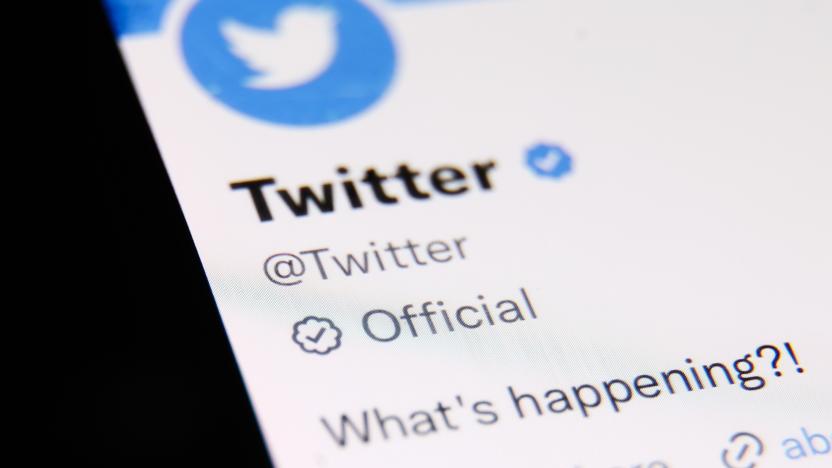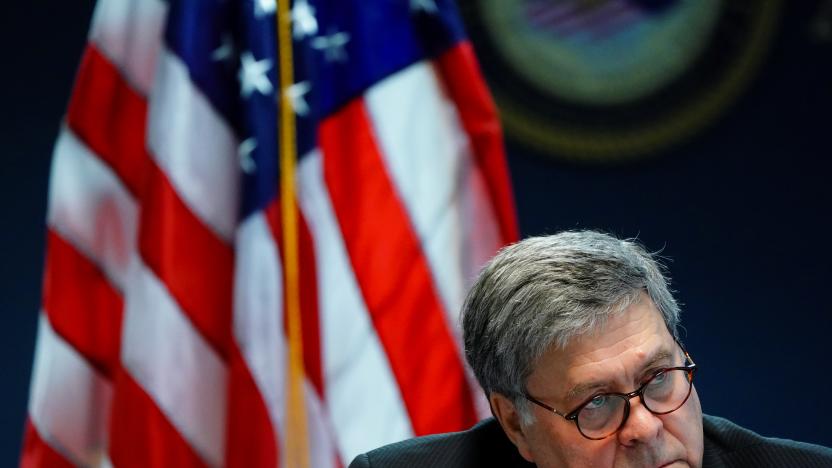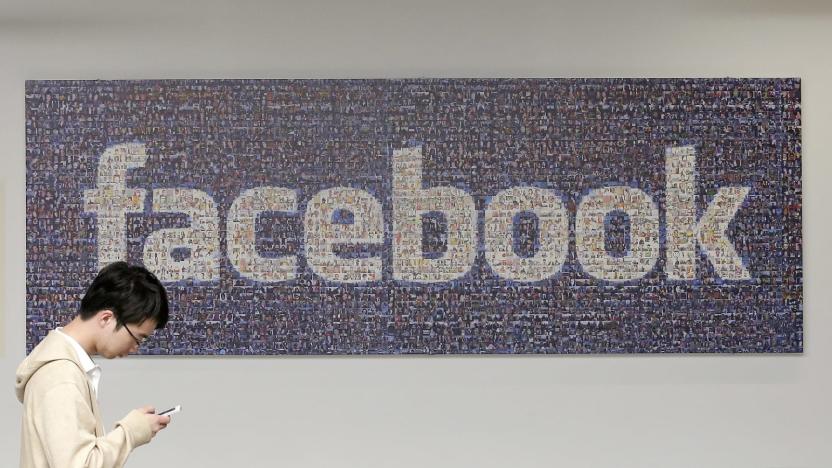liability
Latest

More Twitter privacy and security executives abandon ship
A Twitter lawyer reportedly warned that the company could face billions of dollars in FTC fines if it violates the conditions of a settlement with the agency.

DoJ asks Congress to limit protections for social media companies
The Department of Justice (DoJ) is asking Congress to adopt a new law that would make Facebook, Google and Twitter liable for the way they moderate content, The Washington Post reports. The legislation would alter the controversial Section 230 so that tech companies would be accountable when they “unlawfully censor speech and when they knowingly facilitate criminal activity online.” “For too long Section 230 has provided a shield for online platforms to operate with impunity,” Attorney General William Barr said in a statement.

Facebook will be liable for future Cambridge Analytica-style scandals
Facebook is updating its terms and conditions after agreeing several changes with the EU. It will have to clearly explain to users they can access the social network for free because it uses targeted ads that rely on user data. Facebook will also have to disclose what revenues it generates through the use of such data.

UK politicians blame Facebook for the rise of fake news
After an 18 month investigation, the UK parliament has issued a scathing report on the handling of fake news and illegal election ads by tech companies, especially Facebook. The Digital, Culture, Media and Sport (DCMS) committee said Facebook "obfuscated" information and refused to probe potential Russian abuse until forced to by the US Senate. Worst of all, the social network helped spread disinformation and hatred against the Rohingya minority in Myanmar. "Facebook is releasing a product that is dangerous to consumers and deeply unethical," the report states.

Embedding a tweet could violate copyright
If you've ever embedded a tweet on your blog, that could be a copyright violation, according to a New York federal court ruling. Numerous sites, including Time, Yahoo (which is part of Oath, Engadget's parent company) and Breitbart published stories with an embedded tweet containing an image of NFL star Tom Brady. The tweet was posted by another party, but the photographer who took the photo accused the news sites of copyright infringement for embedding it. The judge agreed, saying their actions "violated plaintiff's exclusive display right."

California axes self-driving car rule limiting liability for crashes
California has been happy to tweak the rules to get more self-driving cars on the road, but it still has its limits. The state's DMV has eliminated a planned rule (suggested by GM) that would have let companies avoid liability for an autonomous vehicle crash if the machine hadn't been maintained to manufacturer specs. In other words, they could have been let off the hook if your car's sensors were muddy, even if an accident was really due to bad code.

Michelle Carter gets 15 months in prison in texting suicide case
Back in June, a Massachusetts Juvenile Court found Michelle Carter guilty of manslaughter for urging her then-boyfriend to kill himself back in 2014. Today, her sentence came down: Of the maximum 20-year prison sentence she faced, Carter will serve 15 months behind bars, with the remainder of the 2.5-year sentence suspended. She will also get five years probation. Carter will remain free as her appeal to the conviction is still pending.

Death by text: How the Michelle Carter case will impact free speech
Words can kill, a Massachusetts Juvenile Court judge decided last Friday, when he found 20-year old Michelle Carter guilty of involuntary manslaughter in the 2014 suicide of her then-boyfriend, Conrad Roy III. This decision, with its broad interpretation of the manslaughter statute, could potentially pose long-lasting consequences for how we speak to each other online and how cyberbullying is addressed by social media platforms.

Michigan embraces our self-driving future
Michigan isn't just America's high five, historically it's the heart of the auto industry as well. And now the state looks to be preparing for the future. Today, Governor Rick Snyder has signed four bills into law regarding autonomous vehicle repair, research, driving networks and accident responsibility.

Galaxy Note 5 wrapper warns you to insert the pen the right way
You probably don't need someone to tell you to insert the Galaxy Note 5's pen the right way, but Samsung isn't about to take any chances. As evidenced in a recent unboxing, at least some newer Note 5 units come with a wrapper advising you against inserting the S Pen backwards lest it "damage the pen and your phone." Is this one of those obvious "coffee is hot" warnings meant more to avoid frivolous lawsuits than anything else? You bet. However, we can't exactly fault Samsung for including it. While most of the people who've shoved the pen in backwards knew what the consequences would be, there's bound to be someone, somewhere who's genuinely caught off guard.

FTC considering new settlement process so companies can't deny wrongdoing
Google recently paid the FTC $22.5 million and Facebook was ordered by the commission to change the way it handles data, but you might be surprised to hear that both companies did nothing wrong. Well, not exactly, but by settling their privacy violation cases, the internet giants are entitled to deny any misconduct. The New York Times reports that J. Thomas Rosch, a commissioner who voted against both settlements, feels that current rules will invite "denials of liability in every case in the future." Rosch wants the policy changed so companies can't deny responsibility when settling, much like the way the SEC handles similar indiscretions. Most of his colleagues weren't in a hurry to back his opinions, but three did say that refining the process could "avoid any possible public misimpression" of how the FTC strikes such deals. The commission is expected to look at the issue in the near future, but until then, we're sure you're more than able to separate the reality from the legalese.

The Lawbringer: Mailbag 5.0
Pop law abounds in The Lawbringer, your weekly dose of WoW, the law, video games and the MMO genre. Mathew McCurley takes you through the world running parallel to the games we love and enjoy, full of rules, regulations, pitfalls and traps. How about you hang out with us as we discuss some of the more esoteric aspects of the games we love to play? Oh my, look at the time. Mailbag-o'clock already? That means we have questions to answer! If you'd like to send me a question for The Lawbringer, point a message from your email client of choice to mat@wowinsider.com with something having to do with Lawbringer in the title and ask away. This week, we've got some fun questions to go through. Our first email comes from Lee, who wants to know if the Diablo 3 currency trading on the real-money Auction House could ever be big enough for a foreign currency exchange-type of marketplace for Diablo gold. Lee asked: You've talked at length about gold farming and the repercussion of gold farming in mmos. Much of it is related to currency trading. You've pointed out that Diablo's new model of selling cash on the auction house will eliminate gold farming and selling as we know it by creating gold to blizzard dollar currency exchange. Do you think we'll see the development of Forex style black box trading, using a Trading API add-on most likely?

The Lawbringer: Rookie's guide to the EULA, part 2
Welcome to the Lawbringer, WoW.com's weekly examination of the intersection between law and the World of Warcraft. Your tour guide is Amy Schley, recent law school grad. Last week, we looked at the first half of the EULA -- the license limitations, the steps to terminate the agreement and a few other provisions. This week is the back half of the EULA -- the warranties, conflict resolution provisions and miscellaneous provisions. Export controls Section 8 prohibits the export and sale of the game to countries the United States has embargoed or persons that are on the "Specially Designated Nationals" list, essentially a list of terrorist organizations. Alas, this means that we won't be settling the War on Terror with world PvP death match.

Gizmodo editor's house searched by police last Friday
Gizmodo editor Jason Chen came home last Friday to find police going through his house in California, according to a just-posted report on the blog that purchased Apple's prototype iPhone, originally lost in a bar a few weeks ago. We posted an analysis over the weekend about Gizmodo's possible liability after a report that police were starting up an investigation into the matter, but it looks like the case struck home quite literally for Chen. The editor had his house broken into (as per a search warrant) by police and multiple computers, hard drives, and an iPhone seized as evidence. Chen was told by officers that he was not under arrest or detainment, and that they were looking for material that may have been "used as a means of committing a felony." Gizmodo's legal representative, COO Gaby Darbyshire, filed paperwork with the officers that claims the search warrant was executed erroneously according to California penal code, which gives journalists fairly wide latitude for protection from seizure, especially regarding the identity of sources. Darbyshire also took issue with the search's time -- it wasn't approved as a "night search" according to the warrant, but took place at 9:45pm local time. As we said last week, it's unclear what liability Gizmodo might have for purchasing the lost iPhone, and uncertain what actions Apple might take in terms of civil or criminal prosecution. But it looks like the police investigation is underway, and if they find anything on the materials procured from Chen's house (as well as defend the complaint against the search's legality) that makes them think a felony took place, then it means this case isn't over. Update: Legal code (quoted in the comments below) says the search can take place between 7am and 10pm, which means the "night search" argument is already invalid. Darbyshire's other argument is questionable as well -- there's some legal dissension over whether the journalist protection extends to warrants like this or not. We likely won't find out whether this evidence stands until the sheriff's office decides to proceed with the case or not -- our legal analyst says that complaints like Darbyshire's should be filed with the judge, not the sheriff.

Determining civil and criminal liability for the lost iPhone
Editor's Note: One of the advantages of having an attorney on the TUAW team is the opportunity for this sort of deep-dive legal analysis. We asked Lauren to dig into the circumstances and statutes around the case of the mystery iPhone, and she obliged. While Lauren is a real lawyer, she's not your lawyer, nor is she licensed in California, so please do not make decisions about what to do with found property in bars without consulting your own legal counsel. Ever since Gizmodo put up those pictures and claimed to have Apple's next iPhone in hand, questions have been swirling about what the repercussions, if any, might be from a legal perspective. While the iPhone's peddler probably ought to be finding himself a lawyer, the more interesting question is this: is Gizmodo courthouse-bound? This question has gotten increasingly more interesting in light of the fact that as of today, CNET reports that Silicon Valley police are looking into the matter. Let's break it down, with a lengthy look at just who might be wronged and how. Find the nearest leather chair, a bookcase of legal tomes, sew on your elbow patches, and get ready to look contemplative. There are two entities to which Giz could be forced to answer: they are Apple, and the State of California, representing both civil and criminal liability respectively.







